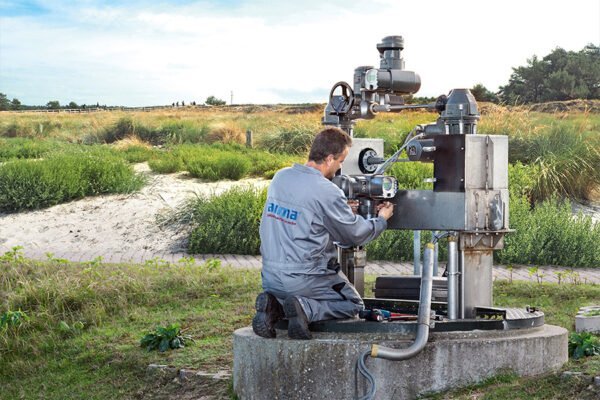Valve systems are critical components in various industrial processes, including chemical processing, oil and gas refining, and water treatment. The role of valves is to regulate the flow of fluids, gases, and other media, often at high pressure and temperature levels. For these systems to function effectively, they need to incorporate actuators. Actuators play a crucial role in valve systems. They are responsible for opening and closing the valve, controlling the flow rate, and ensuring safety and reliability.


Actuators are devices that convert energy into motion. In valve systems, they are used to control the position of the valve plug or disk, which, in turn, regulates the flow rate. There are several types of actuators used in valve systems, including electric, hydraulic, and pneumatic actuators. Each of these actuators has its advantages and disadvantages, and the choice of the appropriate actuator depends on various factors such as the type of valve, the operating environment, and the control system.
The importance of using actuators in valve systems cannot be overstated. Here are some of the reasons why:
Enhanced Performance
Actuators help to improve the performance of valve systems. They allow for precise flow rate control, ensuring that the fluid or gas is flowing at the required rate. Actuators can also respond quickly to changes in operating conditions, such as changes in pressure, temperature, or flow rate. This ability to respond quickly and accurately ensures that the valve system is operating at optimal levels, leading to increased efficiency and reduced downtime.
Improved Safety
Actuators play a crucial role in ensuring the safety of valve systems. By automating the valve operation, the risk of human error is minimized, reducing the likelihood of accidents and incidents. Actuators can also be programmed to shut down the valve in case of abnormal operating conditions, such as a sudden increase in pressure or temperature. This safety feature ensures that the valve system does not cause damage to the equipment or pose a danger to personnel.
Reduced Maintenance Costs
Actuators help to reduce the maintenance costs of valve systems. Automating the valve operation eliminates the need for manual valve adjustments, reducing the wear and tear on the valve components. This reduced wear and tear translates to fewer repairs and replacements, leading to lower maintenance costs. Actuators also have a longer lifespan than manual valves, further reducing the need for maintenance.
Increased Flexibility
Actuators offer greater flexibility in valve systems. They can be programmed to operate in various modes, including on/off, proportional control, and modulating control. This flexibility allows for precise control of the flow rate, making it possible to adjust the flow rate to meet changing process requirements. Actuators can also be integrated into various control systems, such as SCADA and PLC, making it possible to monitor and control the valve system remotely.
In conclusion, actuators are essential components in valve systems. They play a critical role in enhancing the performance of valve systems, improving safety, reducing maintenance costs, and increasing flexibility. By incorporating actuators into valve systems, industries can achieve greater efficiency, reliability, and safety in their processes.



